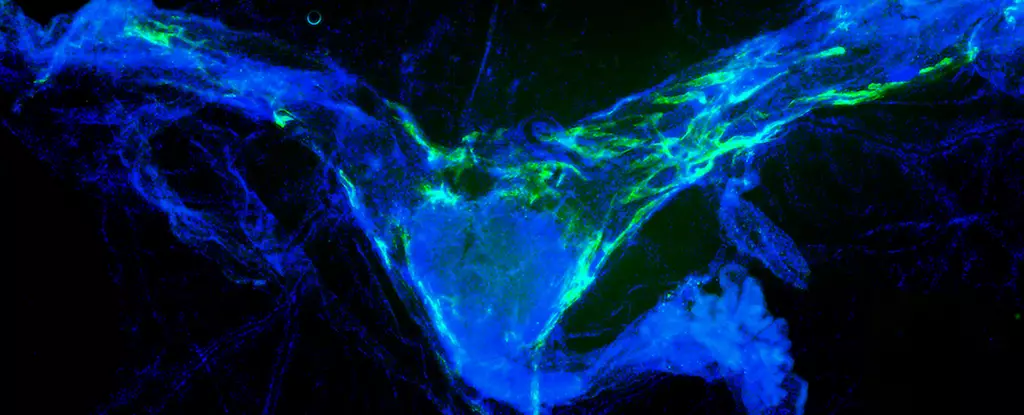As we traverse the inevitable path of aging, the slow deterioration of cognitive functions lurks in the shadows, casting a long, ominous pall over our later years. For millions, this manifests as memory loss and cognitive decline, often culminating in harsh diagnoses like Alzheimer’s disease. But what if we could unveil the hidden biological mechanisms behind this decline and potentially alter its course? Emerging research led by the Washington University team sheds light on an unexpected ally—the meningeal lymphatics—a network overlooked in previous investigations on brain health.
Revolutionizing Waste Removal in the Brain
Recent studies revealed that the brain has its own waste disposal system intricately tied to its lymphatic network. This phenomenon was somewhat eclipsed by the spotlight on neurons and synapses, with little understanding of how waste management impacts overall cognitive health. By utilizing targeted protein therapies in older mice, researchers have unveiled a pathway for rejuvenating these cleansing vessels. Remarkably, the treated mice displayed notable improvements in memory, hinting at a transformative approach to mitigating age-related cognitive decline. This hints at a broader narrative: our brain’s health is tethered not solely to its neurons but also to its waste management capabilities.
Connecting the Dots to Neurodegenerative Disease
Intriguingly, this research intersects with neurodegenerative conditions, offering a potential breakthrough in our understanding of diseases like Alzheimer’s. Aging brains struggle to clear neurotoxins, leading to a deterioration in memory and cognitive functions. The newfound ability to enhance meningeal lymphatic functionality could, hypothetically, slow this cognitive erosion. As Kyungdeok Kim articulated, supporting our body’s waste management system could serve as a pivotal strategy for preserving brain health as we age. It raises significant ethical and moral questions about prioritizing funding and research in this direction—especially when a solution appears to be within our grasp.
Interleukin 6: The Distress Signal
Another revelation stemming from this research is the role of interleukin 6, a distress signal emitted by immune cells when the brain’s cleaning processes are overwhelmed. The association between heightened levels of interleukin 6 and cognitive decline underscores the urgency of calming this distress signal. By reducing its levels through lymphatic treatment, researchers have not only enhanced memory but also underscored the importance of a balanced immune response. The implications for therapeutic interventions in neuroinflammatory conditions are profound, making this an exhilarating yet urgent area of study.
Aiming Beyond the Blood-Brain Barrier
Traditionally, drug therapies for neurological disorders have struggled against the formidable blood-brain barrier. This vascular fortress protects the brain from harmful substances but also complicates treatment efforts. However, the research team discovered that targeting the meningeal lymphatic vessels, located just outside this barrier, offers a clearer path for therapies to improve brain health. This breakthrough opens new therapeutic avenues—potentially transforming how we approach age-related cognitive decline. Scientists like Jonathan Kipnis are not just holding the door open to innovative treatments; they are pushing against it fiercely, advocating for a paradigm shift in neurotherapeutic strategies.
Insights into Cognitive Function and Memory Reinforcement
The convergence of findings regarding meningeal lymphatics and cerebrospinal fluid brings forth a powerful narrative: we may not be able to regenerate lost neurons, but we can ensure their optimal functioning. The possibility that waste clearance could enhance existing memory functions is not just an academic curiosity; it could fundamentally change the way we view memory preservation as we age. Supporting networks that aid brain health, rather than focusing narrowly on repairing damaged neurons, represents a giant leap forward in the quest for cognitive longevity.
In light of these groundbreaking insights, the potential implications for broader public health policies are staggering. As research uncovers the intricacies of brain health, it becomes crucial to advocate for adequate funding and resources in this transformative area. Understanding that maintaining a health-conscious view towards our brain—through waste management and immune response—becomes not just a personal challenge, but a societal imperative. Society cannot afford to overlook such promising avenues for improving quality of life as we age.



Leave a Reply